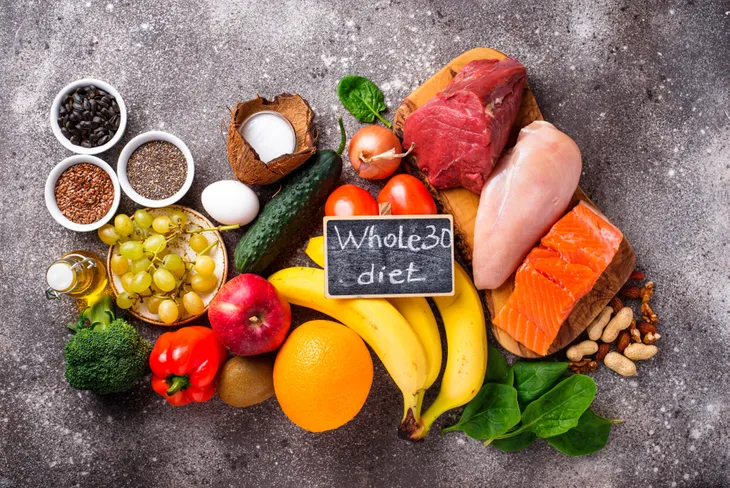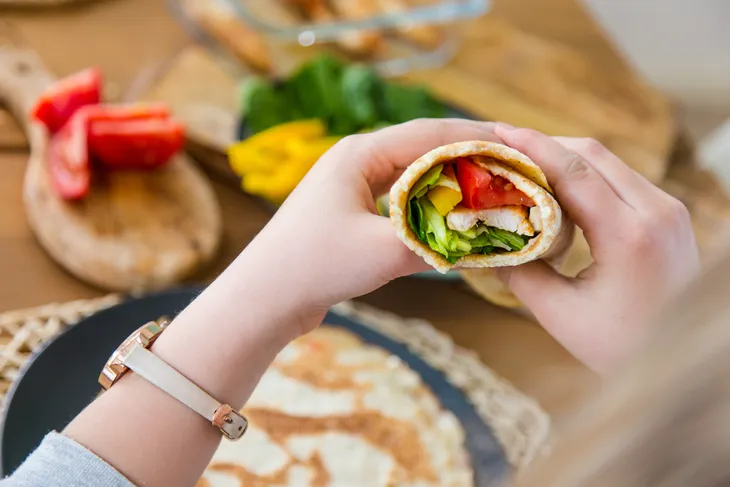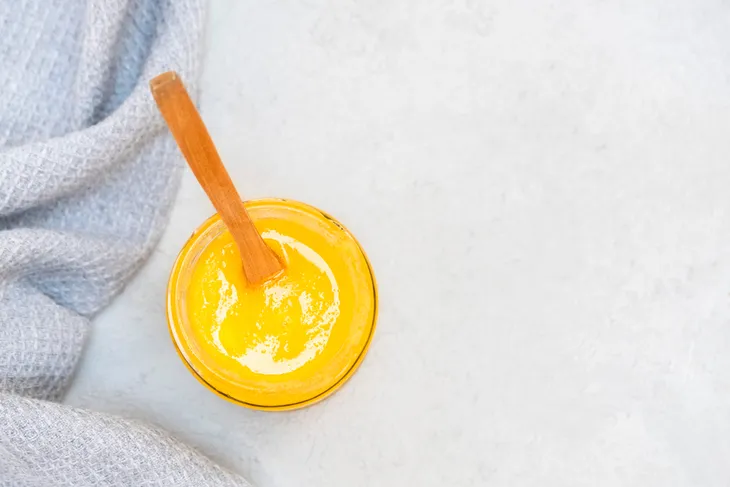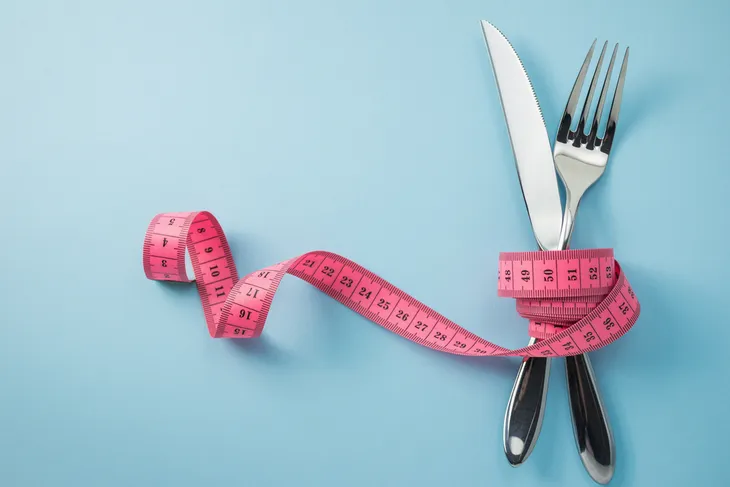Diet fads seem to come and go quicker than the changing seasons and for every type of person, there seems to be a different diet or health regime to suit each unique style. From the Paleo diet to juice cleanses, and let’s not forget about the once massively popular Atkins diet, there are many ways to diet in hopes of a healthier lifestyle.
One such diet you may have heard about lately is the Whole30. The phrase keeps popping up online in many health blogs and is much talked about in the fitness world. The diet’s slogan is “The 30 Day Guide to TOTAL HEALTH and FOOD FREEDOM” those are some pretty strong claims, so we figured it was high time to take a closer look and help explain what’s behind the Whole30 Diet…
Introducing the Whole30
The Whole30 (yes they spell it as one word) diet was created in April 2009 by Dallas and Melissa Hartwig. Dallas is a functional medicine practitioner, Certified Sports Nutritionist, and licensed physical therapist while Melissa is a Certified Sports Nutritionist and best-selling author of the Whole30 guidebook.
The program is designed as a “nutritional reset” for your body, which means it’s meant to change the way you eat (thus changing your life) in just 30 days. The program claims that if the rules are followed for the 30 day timeframe, it will effectively “put an end to unhealthy cravings and habits, restore a healthy metabolism, heal your digestive tract, and balance your immune system.” These are some pretty big claims for just a month of your time.
Whole30 Rules: Part 1
Of course any healthy diet program must have rules, and Whole30 does have quite a few of them. We’re not surprised at this either because anything claiming to offer “total health and food freedom” must have some parameters. Here are the foods you cannot consume during the Whole30 program: No added sugar of any kind, real or artificial. That means no maple syrup, agave nectar, coconut sugar or any other kind of sweetener. No alcohol or tobacco, even for cooking, which could perhaps be one of the hardest rules for many people to follow.
No grains, even ‘healthy grains’ and gluten-free grains like quinoa and oats are off limits. No legumes, this means no beans of any kind and also no soy (tofu, edamame, soy sauce), no peas or peanuts…and sadly no peanut butter. No dairy, this includes cow, sheep and goat products. No carrageenan, MSG, or sulfites (you’ll have to check labels closely for these ones). And the last rule, no recreating baked goods or treats with Whole30 approved products. The point is to eat whole foods.
Whole30 Rules: Part 2
You’re probably thinking that there’s a lot of rules to this diet, and you’re right, especially after reading all the things you can’t eat. But there are lots of things you CAN eat. Here are the things you can enjoy while one the Whole30 program: meat, seafood, eggs, vegetables, fruit, oils, and nuts and seeds. The program advises you to eat tons of vegetables, a little fruit (because it does contain natural sugars), some meat and eggs, as well as healthy fats from the oils, nuts and seeds (just remember no peanuts or peanut butter).
It also encourages you to eat products with very few ingredients and to avoid anything you can’t pronounce. Oh, and one last rule we didn’t mention above: no scales or body measurements for the entire 30 days. This is because the creators want you to focus on overall health and wellbeing rather than inches or numbers on the scale. You can still weigh yourself before and after your Whole30 experience.
Whole30 Exceptions
How does the saying go? “To every rule there is an exception.” While that’s not quite the case with the rules for the Whole30 program, there are some exceptions to be aware of. Here they are: While no dairy is allowed, you are permitted to have clarified butter (also known as ghee) during your 30 days. Fruit or fruit juice as a sweetener is allowed. Some products or recipes will use the naturally occurring sugars in fruit as a sweetener, which is ok.
While legumes are off limits, it’s indicated that green beans, sugar snap peas, and snow peas are all permitted, because they’re more of a green vegetable than a legume. Vinegar is allowed during your Whole30, but any kind of vinegar with added sugar or malt vinegar is not allowed because it contains gluten. Surprisingly, all iodized table salt contains sugar. It is chemically essential to keep the potassium iodide from oxidizing and being lost, and while most restaurant and packaged foods contain salt, they have made salt an exception to the “no added sugar” rule.
Whole30 Benefits
Now that we’ve gotten all the rules (and exceptions) out of the way, let’s take a look at the marketed benefits of the Whole30 program, after all the benefits must be good for people to stick to so many rules! The creators of the Whole30 diet say that this program will change your life, and they say this many times throughout their book and on the program website.
Specifically, they report that 95-percent of participants who follow the program lose weight and improve their body composition, without having to count or restrict calories. They also report improved athletic performance, higher energy levels, improved mental focus, and clarity and better sleep. The psychological benefits are said to include reductions or elimination of food cravings (particularly related to sugar and carbs) and developing a healthier body image.
Whole30 Criticisms
As with any diet, there are critics of the Whole30 program and much of that criticism is due to the highly strict restrictions. A duration of 30 days is a long time to go without sugar, grains, or dairy (let alone alcohol and legumes), and oftentimes the daunting time frame prevents people from even considering the diet.
There’s also the fact that if you slip up or cheat with a dash of milk in your coffee or even a sneaky little lentil, you have to start back at day 1, which many critics consider a harsh approach to healthy eating. Some nutritionists like Keri Glassman of nutritiouslife.com take issue with the no dairy to legumes rules and say that foods like greek yogurt, chickpeas, and lentils have their place in any healthy diet, and are especially important for vegetarians. And as most dieticians would say, anything that restricts excessively cannot be practical.
The Whole30 Commitment
The Whole30 diet program takes commitment, and the creators ask for this commitment upfront in a few ways. First, they ask you to choose a start date, which doesn’t have to be tomorrow. In fact, they encourage you to choose a date in the future so that you can plan and prep ahead of time by cleaning out your pantry (no diet can withstand a bag of Cheetos starring you in the face), grocery shopping, and doing some meal planning for the month.
This also allows you to schedule around special occasions like weddings and birthdays so you won’t be tempted to cheat. They also encourage going public with your Whole30 challenge to gain extra support from social media like Facebook and Instagram. Ultimately the Whole30 diet is a big commitment, and while it’s not for everyone, it can be effective as long as you don’t get down on yourself and suffer negative mental stigma for any slip ups. However, frequently the excessive overshare and constantly being on a diet has been shown to lead to eating disorders.










